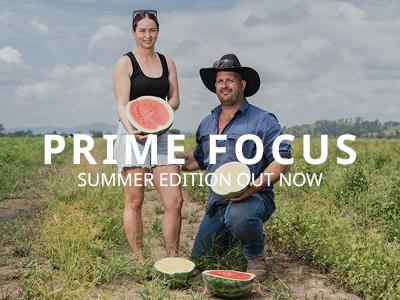
Growing, rebuilding and moving forward with QRIDA
As third and fourth-generation sugarcane growers from El Arish on Queensland’s Cassowary Coast, Mathew and Sarah Di Mauro have spent their lives connected to the land, now growing both cane and watermelons and building their future in one of the state’s most productive yet weather-exposed regions.
Over the past decade, their journey has been shaped by growth, perseverance and a strong partnership with the Queensland Rural and Industry Development Authority (QRIDA).
“I had an opportunity to grab a bit of dirt through QRIDA. Sam Spina [QRIDA Regional Area Manager for Far North Queensland] was the one who helped us out with getting that,” Mathew said.
Like many young farming families, the Di Mauros faced challenges breaking into farm ownership, despite their deep generational ties to agriculture.
“We had a few options with other banks and we got told no, it was a big push to try and make it happen,” Mathew said.
“We were able to get together and, with Mathew in the background telling us what he wanted to do and Sarah in the foreground putting together all the paperwork, we were able to get them their first First Start application,” Sam said.
For the Di Mauros, the loan provided the stepping stone they needed to transition from leasing land to ownership.
“Mathew and Sarah are on their third First Start Loan because they have been growing their business in stages,” Sam said.
Beyond business growth, the Di Mauros’ relationship with QRIDA has also extended to disaster recovery, following severe weather events that have impacted the Far North in recent years.
In December 2023, Tropical Cyclone Jasper caused widespread flooding and damage along the Cassowary Coast.
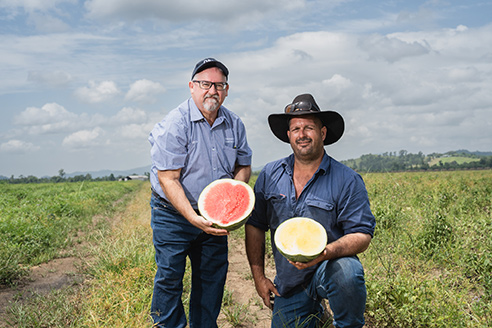 QRIDA's Exceptional Disaster Grant for Cyclone Jasper helped fund essential clean-up and repair works, allowing the couple to restore damaged paddocks and farm infrastructure to get production back on track.
QRIDA's Exceptional Disaster Grant for Cyclone Jasper helped fund essential clean-up and repair works, allowing the couple to restore damaged paddocks and farm infrastructure to get production back on track.
“There were crossings washed out, there was topsoil pushed off paddocks, there was trash over the top of cane. It was just a disaster; you didn’t even know where to start. That grant got us through to keep going.”
Unfortunately, in January 2025, the region was hit by the North and Far North Tropical Low, causing significant rainfall and flooding again.
“All the work that had been completed, that money has to be spent again, and we have already discussed how we’re going to put the application together,” Sam said.
For Mathew and Sarah, having consistent, on-the-ground support from QRIDA has been vital through both growth and recovery.
Through a combination of concessional loans, disaster recovery grants and personalised regional support, QRIDA helps farming families like the Di Mauros grow, adapt and remain resilient for generations to come.
Read or watch the Di Mauros story here.
QRIDA administers financial assistance to disaster affected primary producers, businesses and non-profit organisations under the jointly funded Commonwealth-State Disaster Recovery Funding Arrangements (DRFA).
Supporting disaster recovery on the ground in North West QLD
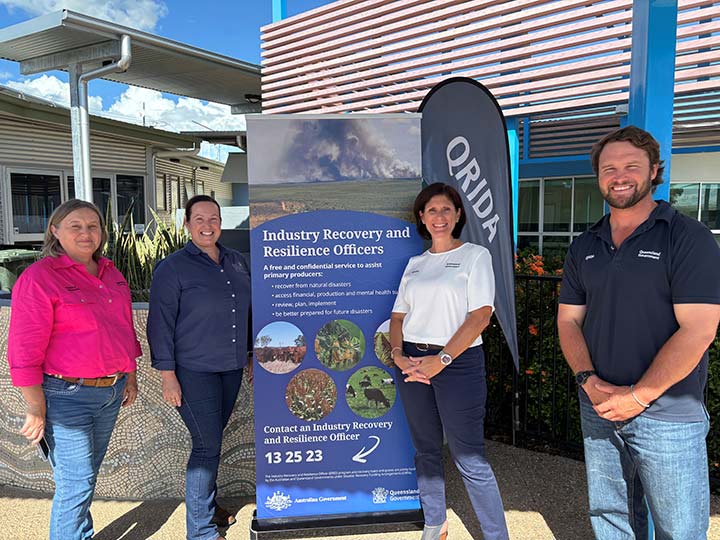
The start to 2026 has been tough for many primary producers, with the recent flooding and Ex-Tropical Cyclone Koji event damaging properties and causing crop and livestock losses across Central, North and North West Queensland.
Since disaster recovery grants and low-interest loans became available through QRIDA shortly after this disaster event, the team has been working hard to help producers access financial assistance to clean-up and recover as quickly as possible.
As part of QRIDA’s disaster financial assistance delivery, I’ve been on the ground in some of the disaster-affected communities in North West Queensland, seeing the damage first-hand, listening to and supporting disaster-impacted primary producers.
I joined Regional Area Manager for North West and Gulf, Sam Fryer, at a series of QRIDA Disaster Recovery Pop-up Offices in Julia Creek and Richmond, together with other government representatives, to help disaster-impacted producers in-person.
It was rewarding to be part of conversations at the Pop-up Offices where we listened and responded to producers’ questions and provided them with personalised, one-on-one support to help them complete their applications for disaster recovery financial assistance.
While our Regional Area Managers have been on the ground across disaster-impacted regions from Cloncurry to Mackay hosting these Pop-up Offices, we've also had a dedicated team offering one-on-one telephone and virtual support through our ‘QRIDA Connect’ sessions, so producers can get help without having to leave their property.
While the landscape has flourished following the recent floods, we know it will be a lengthy recovery process for many producers, and I’m proud of the role played by the QRIDA team who will be there for the long haul to help these communities get back on their feet.
For more information about QRIDA’s disaster financial assistance, visit our Primary Producer, Business and Non-Profit Organisation webpages. To book a QRIDA Connect session, call 1800 623 946.
Pictured above: QRIDA CEO, Brooke Irwin at the Julia Creek Pop-up Office with Industry Recovery and Resilience Officer Vicki Mylrea, Emma Cook from Rural Financial Counselling Service North Queensland, and QRIDA's Regional Area Manager for North West and Gulf Sam Fryer.
Brooke Irwin
QRIDA Chief Executive Officer
Personalised disaster application support available
application support available
Primary producers can book a QRIDA Connect session for personalised disaster application support.
Sessions are delivered virtually at flexible times via platforms such as Microsoft Teams or by phone, so you can get help without leaving your farm or business.
Visit QRIDA's Disaster Recovery Connect webpage for further details and how to book your session.
QRIDA back dream to build Australia's biggest crayfish farm
Five and a half hectares of ponds stand between Nathan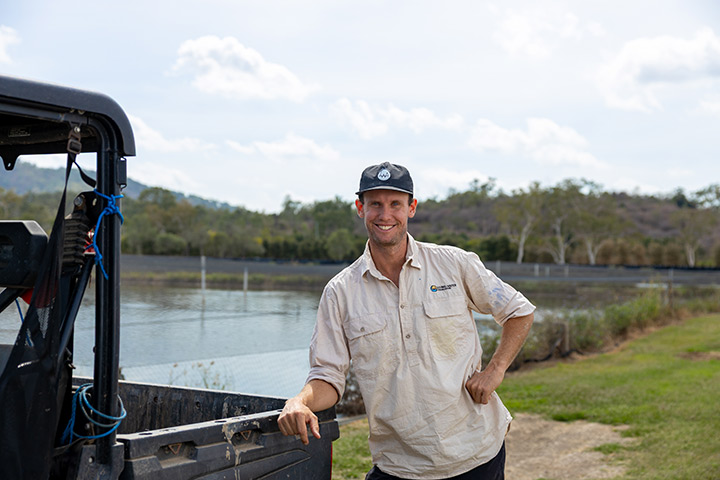 Cleasby and his ambition to make his North Queensland redclaw crayfish farm the biggest in Australia.
Cleasby and his ambition to make his North Queensland redclaw crayfish farm the biggest in Australia.
“We’ve got a small industry standard pond, a larger square prawn pond, and an even larger rectangular pond, so what we’re doing is figuring out what does the ideal pond look like for a large redclaw crayfish farm,” Nathan said.
“We’ve got a lot of other questions to answer. We’ve got to look at feeding, we’ve got a project with the CSIRO, and we’ve got a project with the university here looking at nursery stages.
“Once we’ve answered those questions and we’re confident in our production, we’ll look to expand and build the biggest redclaw crayfish farm in Australia.”
Nathan’s dream was inspired by the gap in Australia’s aquaculture market, after struggling to meet the demand from his current buyers of restaurants and wholesalers between Port Douglas and Sydney.
“Normally it's gobbled up locally before we can send it out. We do have interest from overseas. We're working on some
export permits,” Nathan said.
Nathan used a concessional First Start Loan from the QRIDA to help fund the construction of the ponds as well as the purchase of his freshwater redclaw crayfish farm at Majors Creek, 50 kilometres west of Townsville.
“Aquaculture farms are pretty few and far between, so it was difficult to find the right site,” Nathan said.
While Nathan has a long list of academic achievements, including a Master of Aquaculture and a Nuffield Farming Scholarship to study how Australia can supply more crayfish globally, navigating QRIDA’s loan application process was
unchartered waters for him.
“I’m what they call a first-generation farmer, so understanding how it works to buy a property and how to finance it was all very new to me. I was very lucky to have Angelo, our Regional Area Manager, come out multiple times and explain the process,” Nathan said.
QRIDA Regional Area Manager for North Queensland, Angelo Rigano, said Nathan’s First Start Loan application was complex given the niche aquaculture industry, but was able to make the process as straightforward as possible during multiple farm visits to Nathan.
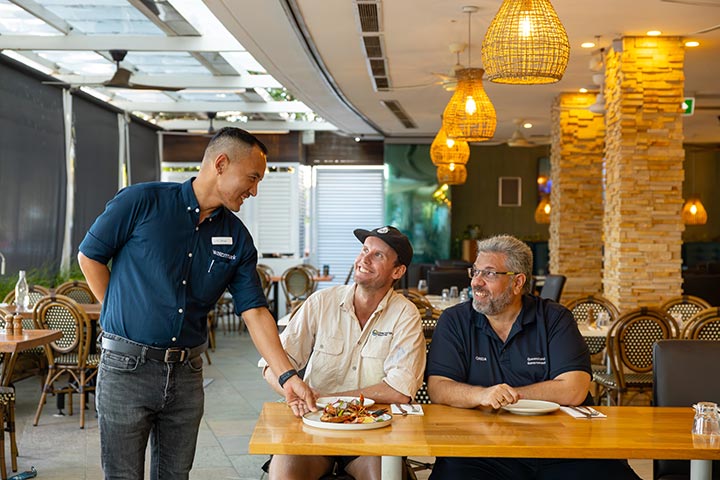 “Needless to say, I was quite impressed with Nathan’s depth of industry knowledge and what he wanted to achieve and how he wanted to get there,” Angelo said.
“Needless to say, I was quite impressed with Nathan’s depth of industry knowledge and what he wanted to achieve and how he wanted to get there,” Angelo said.
“QRIDA is well-known as being a specialist financier to Queensland farmers. We have a broad appetite for all sorts of industries that are primary producer-based in Queensland.”
From hatchery to plate, Nathan’s passion for the aquaculture industry is clear, and he encourages other up-and coming Queensland primary producers to reach out to QRIDA to help them realise their aquaculture, commercial fishing and farming dreams.
“I’d definitely recommend QRIDA. Especially for a first-generation farmer to get some land that you can sink your teeth into and get going initially with such a higher capital cost.”
For more information about how QRIDA’s First Start Loans could help you build a viable primary production operation, visit QRIDA's First Start Loan webpage or call us 1800 623 946
Applications now open for $50k Drought Preparedness Grants
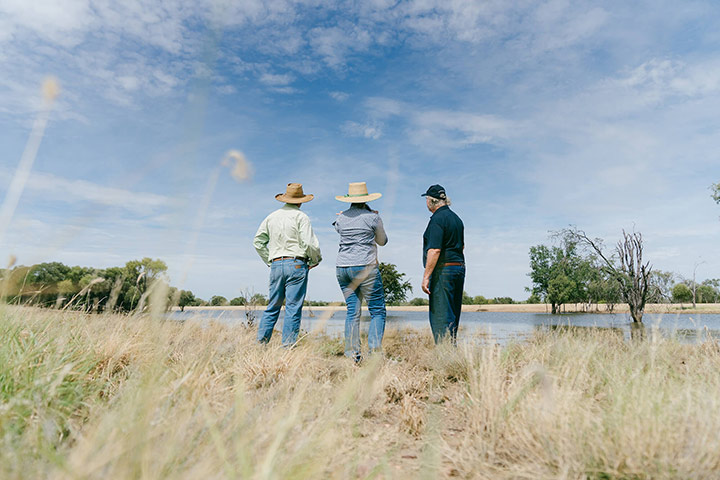 Queensland primary producers are encouraged to apply for the 2025/26 round of Drought Preparedness Grants now open through QRIDA.
Queensland primary producers are encouraged to apply for the 2025/26 round of Drought Preparedness Grants now open through QRIDA.
QRIDA Disasters and Drought Manager, Sheree Finney, said the co-contribution grants can help primary producers improve their operations’ drought resilience.
“Drought Preparedness Grants of up to $50,000 can help primary producers cover 25 per cent of the cost of purchasing
or upgrading permanent capital infrastructure such as tanks and troughs to get ready for the next drought,” Sheree said.
To be eligible for a Drought Preparedness Grant, Sheree said Queensland primary producers must have a Farm Business
Resilience Plan or equivalent that lists the relevant drought activity.
“There are a range of agricultural peak bodies specific to your industry that can help you complete your Farm Business Resilience Plan,” Sheree said.
“You can also seek help with your Farm Business Resilience Plan from government departments and service providers such as the Department of Primary Industries, Rural Solutions Queensland, and Farm Business Planning North Queensland.”
Queensland primary producers are also encouraged to apply for a concessional Sustainability Loan through QRIDA to carry out additional drought resilience activities that are not eligible under the Drought Preparedness Grant.
"QRIDA’s Sustainability Loans of up to $1.3 million can help fund a range of activities to boost productivity and profitability such as repairing existing infrastructure to improve water efficiency.”
QRIDA has a network of Regional Area Managers located across Queensland who can help primary producers apply
for the grants and answer any questions they have about Drought Preparedness Grants and Sustainability Loans.
For more information, including Scheme guidelines and how to apply, visit the Drought Preparedness Grant webpage or call 1800 623 946.
QRIDA is administering the Queensland Government’s Drought Preparedness Grants and Sustainability Loans on behalf of the Department of Primary Industries (DPI).
Our team in regional Queensland, helping yours
QRIDA has a network of Regional Area Managers (RAMs) based throughout Queensland who can provide you with the latest local knowledge and expertise on our programs and services.
We've got Queensland covered with offices based in Brisbane, Bundaberg, Emerald (with regular visits to Longreach), Hughenden (with an office in Cloncurry), Innisfail, Kingaroy, Mackay, Rockhampton, Roma, Toowoomba and Townsville.
In each newsletter we feature an update from three of our RAMs. To find details of your local RAM, contact us on 1800 623 946 or visit the Your Region webpage where you can search by region or postcode.
Angelo Rigano, North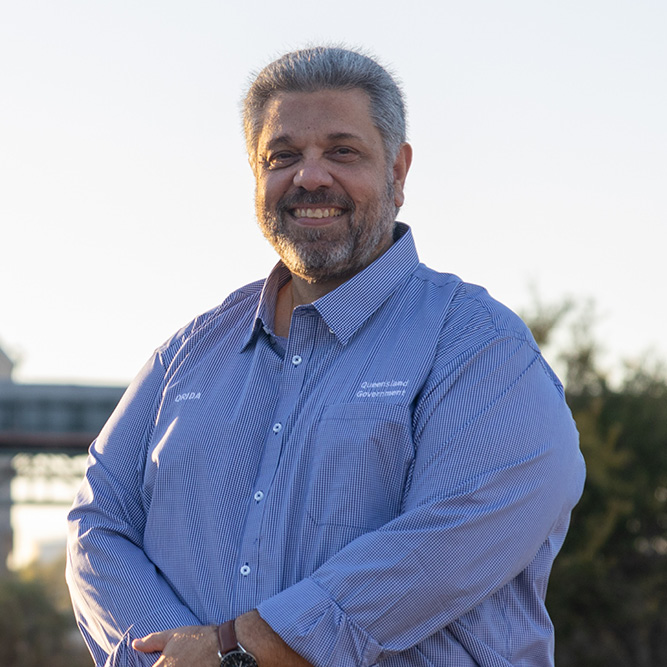
In 2026 I’m looking forward to helping more up-and-coming producers like local crayfish grower, Nathan Cleasby, featured on pages 2 and 3 of this edition.
Above that story, make sure you also read the exciting news about the new round of Drought Preparedness Grants available through QRIDA. Don’t forget, a low interest Sustainability Loan can be used as the co-contribution. Get in touch with me for more information.
You can also rest assured QRIDA is backing disaster-impacted producers with more financial recovery assistance after parts of North Queensland were recently flooded for the second time within a year. There’s plenty of time to apply for QRIDA disaster assistance for both events that have impacted my region, with the application deadline for the early 2025 Tropical Low event extended until 14 August 2026 for primary producers.
If you need help with your QRIDA disaster grant or loan application, I encourage you to book a QRIDA Connect session by calling 1800 623 946.
Cynthia Godden, Burnett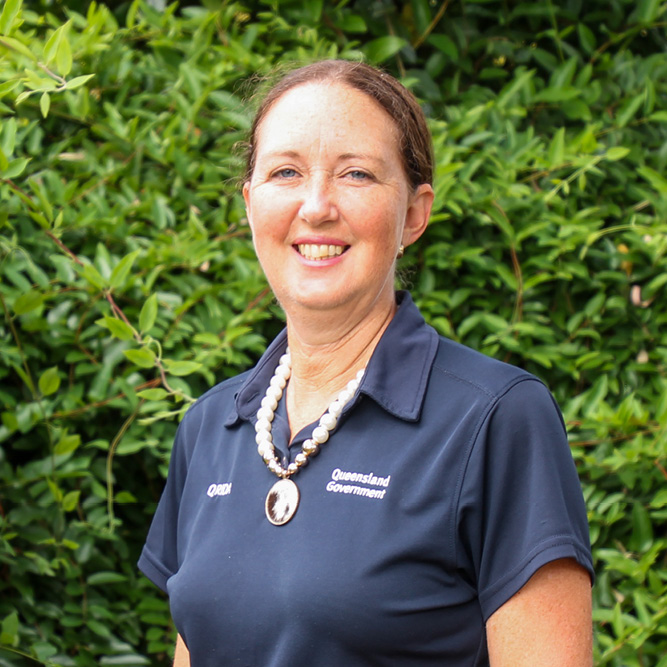
While some regions have been fortunate to receive good rainfall and avoid major disruptions, preparing early for future seasons remains essential.
With rainfall indicators beginning to drop, now is the time to explore the range of QRIDA programs available to support your business. These include First Start Loans, Sustainability Loans, Drought Preparedness Grants and Farm Debt Restructure support, to help primary producers improve efficiency, resilience, and long-term sustainability.
As each program has different eligibility and documentation requirements, it’s important to carefully review guidelines before applying. QRIDA is dedicated to supporting producers, businesses, and not-profit organisations through financial assistance, working alongside a network of agencies that provide complementary advice and support.
To stay informed about programs and key industry contacts in the Burnett region, I encourage you to subscribe to my e-newsletter.
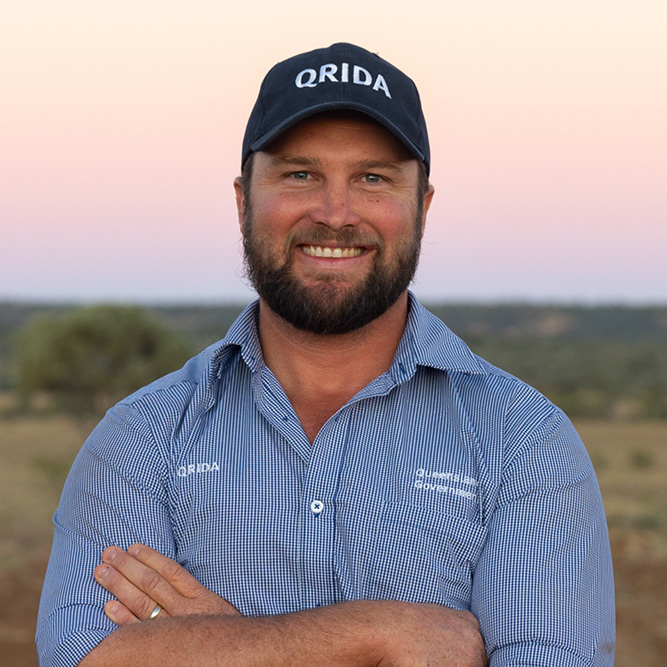 Sam Fryer, North West & Gulf
Sam Fryer, North West & Gulf
Recent flooding across the North West and Gulf has had a significant impact on many communities, with some areas still under water. My thoughts are with everyone doing it tough right now.
As we move into the year, my focus is on getting out to communities and supporting people as they get back on their feet.
In coming weeks I’ll be visiting primary producers and small businesses across my region to help them understand the support that may be available to them. This includes grants of up to $75,000 and Disaster Assistance Loans of up to $250,000 to support recovery and rebuilding efforts. If you want to make a time to meet with me give me a call.
Lastly, I encourage any affected producers to complete the Department of Primary Industries Disaster Impact Survey. It plays an important role in informing ongoing recovery measures and ensuring support is targeted where it’s needed
most.
Visit QRIDA’s disaster preparedness webpage for tips and resources to help safeguard your business before, during and after severe weather events. If you are impacted by a disaster, remember to monitor the QRIDA website for updates on available assistance and support programs.
Missed out on a previous copy of Prime Focus? Read past editions here:
2025
Spring 2025 (PDF 972KB) | Winter 2025 (PDF 1.1MB) | Autumn 2025 (PDF 1,032KB) | Summer 2025 (PDF 1,582KB)
2024
Spring 2024 (PDF 1,849KB) | Winter 2024 (PDF 1,681KB) | Autumn 2024 (PDF 1,650 KB) | Summer 2024 (PDF 1,582KB)
2023
Spring 2023 (PDF 1,906KB) | Winter 2023 (PDF 1,386KB) | Autumn 2023 (PDF 1,406KB) | Summer 2023 (PDF 654KB)
2022
Spring 2022 (PDF 618KB) | Winter 2022 (PDF 708 KB) | Autumn 2022 (PDF 577 KB) | Summer 2022 (PDF 537 KB)
2021
Spring 2021 (PDF 655 KB) | Winter 2021 (PDF 626KB) | Autumn 2021 (PDF 602KB) |
2020
November 2020 (PDF 665KB) | May 2020 (PDF 561KB)
2019
December 2019 (PDF, 602KB) | July 2019 (PDF, 623KB) | March 2019 (PDF, 619KB)
